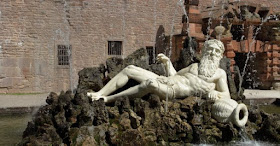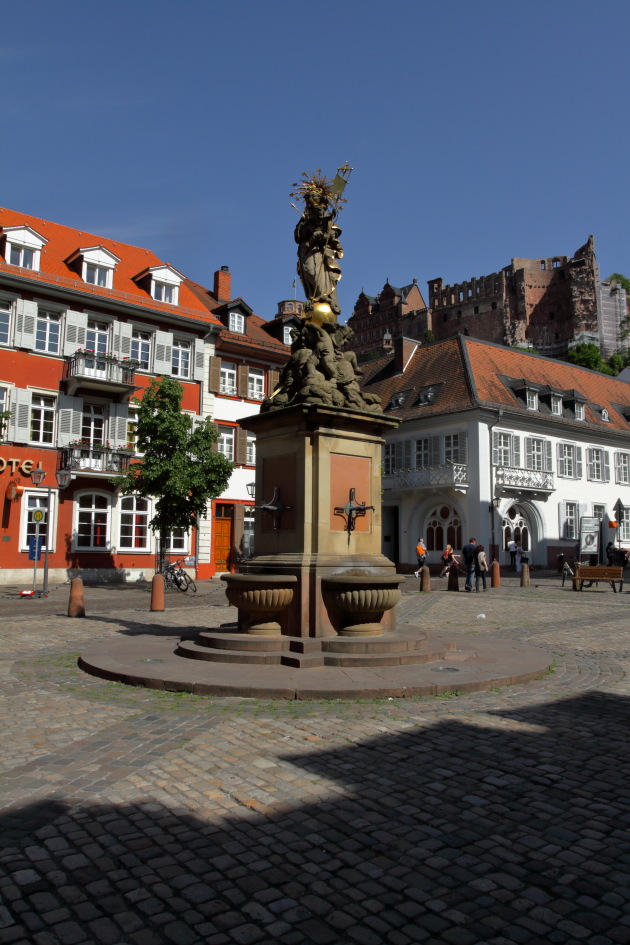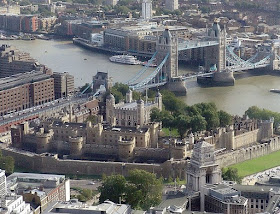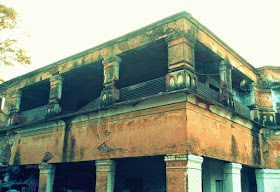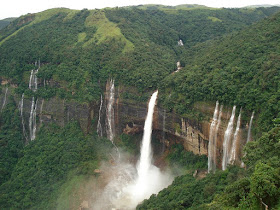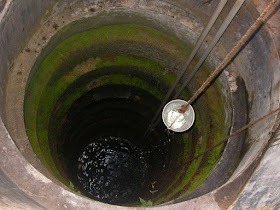Note: The budget numbers mentioned below against each destination is per person per day and it includes food, stay, logistics, entrance fees, et al. It doesn’t include shopping, alcohol expenses or any splurging. And it doesn’t include flights to and from that country.
Thailand

The eternal favorite for all Indian travelers, Thailand, very much deserves this prestigious tag. From endless shopping to vibrant festivals, from gorgeous beaches to misty mountains, from delicious food to relaxing massages and from culturally rich temples to a very hospitable set of people, this kingdom has it all. Countless Indians have had fabulous holidays here. So have I. My favorite places are Ko Lanta, Ko Tao, Mae Hong Son, Bangkok and Chiang Mai. Be it live-aboard scuba diving trips, iconic full-moon parties, the festival of floating lanterns, the best rock climbing in South East Asia and so many more, Thailand bound travelers are truly spoilt for choice.
Visa Process for Indians: Visa on Arrival valid for 14 days for a fee of 1000 THB. All you need is enough money and a return flight ticket.
Budget
Backpacker Style: USD 15
Mid Budget Style: USD 50
Bhutan
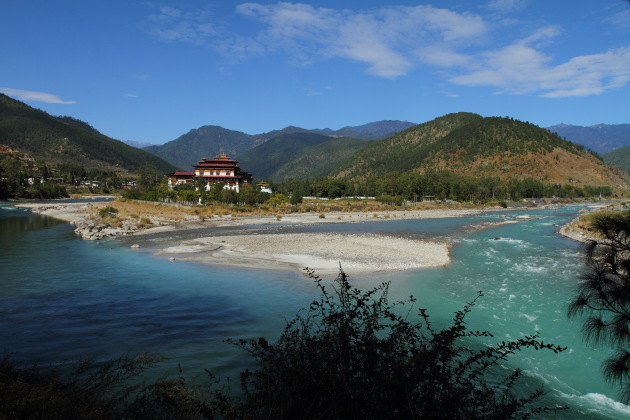
Like I have mentioned before in my Bhutan articles, this Himalayan Kingdom is the best perk of the Indian Passport. We don’t have to shell out 250 US Dollars per day like people of other nationalities. Rather, we pay as the locals do, which is lower than expenses in India. We can visit Bhutan as an overland trip or simply fly in and the whole kingdom of happiness lies in front of us. From the iconic Tiger’s Nest to the Switzerland of the East in Bumthang, from the cantilever bridges of Punakha to the sunrise over the Eastern Himalayas at Dochu La and from the culturally vibrant capital of Thimphu to the remote valley of Haa, this country possesses all the ingredients to captivate one and all.
Visa Process for Indians: Bhutan is visa free for Indian citizens. If you travel overland, you get a permit of 7 days that you can renew at the office in Thimphu. And if you fly into Paro, you usually get a permit for 15 to 30 days.
Budget
Backpacker Style: USD 20
Mid Budget Style: USD 45
Cambodia

Another hot destination for Indian travelers! After all, it is home to the largest Hindu temple in the world. Most visitors to Cambodia visit Angkor Wat and Siem Reap and return home, but this South East Asian country offers so much more. It has the floating villages at Tonle Sap, the largest freshwater lake in the region. It has some of the most pristine beaches, islands and coral reefs in its Southern coast. It has a laidback riverside hamlet in Kampot and a bustling riverside capital in Phnom Penh. In terms of activity, you can shoot kalashnikovs near Phnom Penh, trek in the sultry jungles of the north, cycle through the mountains of the South and listen to atrocities from the Pol Pot era.
Visa Process for Indians: Visa is easily available on arrival or in advance as an e-visa.
Budget
Backpacker Style: USD 12
Mid Budget Style: USD 40
Indonesia

The world’s largest archipelago is a country of amazing wonders. Adventure lovers will find everything from active volcanoes, the best surf breaks, dense rainforests, exotic animals such as Orangutan, Sumatran Tiger and Komodo Dragon to some of the best dive sites in the world. Lovers of hidden tribes will find riches on every island. Each island offers it own unique flavor and that’s what makes it so special. My favorite islands in Indonesia are Sulawesi, Papua and Sumatra. They are a bit off the track, but totally worth the extra effort. The world over loves Bali. I guess I don’t need to talk much about this gorgeous island. And the riches of Java are known to all.
Visa Process for Indians: Visa on Arrival valid for 7, 14 or 30 days depending on your proposed duration of stay. This visa can be extended for one more similar term.
Budget
Backpacker Style: USD 20
Mid Budget Style: USD 50
Vietnam

From Ho Chi Minh city to Hanoi, this long country has been spoilt with riches. Be it the islands off the south coast, the capital Saigon itself, the limestone karsts off Halong Bay, the stunning world heritage site of Hoi An, the red sand dunes of Mui Ne, the beaches of Nha Trang and the mountains of Sapa, Vietnam is quite a special country. Add to it the exotic noodles, the cheap beer, the extremely cheap travel budget and you have a prized gem of South East Asia.
Visa Process for Indians: Visa on Arrival valid if you get an approval letter from an authorized travel agent in advance.
Budget
Backpacker Style: USD 14
Mid Budget Style: USD 35
Nepal

When you think Himalayan treks, you think of Nepal. After all, it is home to the one and only Mount Everest. But, the list doesn’t end there. It has cultural gems in the Pashupatinath temple, Bhaktapur, Patan and Kathmandu. It has many stunning treks. Two of the more famous ones are the Everest Base Camp trek and the Annapurna Base Camp trek. Pokhara and its near-abouts is known for its solitude, spectacular nature and remote countryside. The South is known for its rich Buddhist connection, fast rivers and steamy jungles. Jomsom and beyond is famous for its cold desert type mountains. And who can forget the super hospitable, friendly and ever-smiling people of this lovely country. It is these very people who make Nepal the safest country in South Asia.
Visa Process for Indians: There is no visa required for Indian citizens. The immigration officials do not even stamp your passport. And you can stay for as long as 6 months on one trip.
Budget
Backpacker Style: USD 11
Mid Budget Style: USD 60
Macau

This might come as a surprise to many, but Macau is indeed a budget gem in East Asia. Travelers usually associate it with 5 star luxury hospitality groups and casinos. But, they are not expensive to see. They are only expensive if you wish to live that life. And then, there is the rich Portuguese cultural attraction of Macau with Senado square, the ancient churches and the narrow alley ways of the old town. All you need to do is dress well, chomp on some of the famous egg tarts of Macau, blow a small amount of money in the casinos to keep the gambler in you satiated and avail the free shuttle bus service of the luxury hotel groups to explore all the hot hotel properties of Macau at no extra cost.
Visa Process for Indians: Visa free for Indians. A simple stamp at entry allows stay up to 30 days.
Budget
Backpacker Style: USD 25
Mid Budget Style: USD 100
Laos
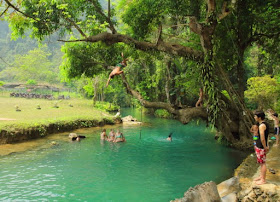
One of the most peaceful countries of South East Asia and by far my favorite destination in the region, Laos is totally off the beaten track and that's what makes it so special. From the fairy tale city of Luang Prabang to Vang Vieng, the adventure capital of this country. And from the thousands of islands on the Mekong river in the South to the lofty mountains of Luang Namtha in the North, Laos is all about relaxation, off-beat and pure adventure. This is one of those countries that I would visit again and again without battling an eyelid. My favorite places in this country are the Bolavan plateau and Muang Knoi.
Visa Process for Indians: Visa on Arrival valid for 30 days.
Budget
Backpacker Style: USD 12
Mid Budget Style: USD 30








